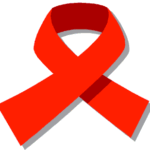Benefits of omega-3 fatty acids in people with HIV
 The effect of a dietary omega-3 fatty acids supplementation on triglycerides and markers of insulin sensitivity was investigated by researchers at Tufts University School of Medicine, in Boston.
The effect of a dietary omega-3 fatty acids supplementation on triglycerides and markers of insulin sensitivity was investigated by researchers at Tufts University School of Medicine, in Boston.
First, the details.
- 54 people with HIV and high triglyceride blood levels (greater than 150 mg/dL) and/or abnormal Quantitative Insulin Sensitivity Check Index values (a calculation based on fasting blood sugar and insulin levels) were recruited.
- They were randomly placed on a controlled diet or uncontrolled (placebo) diet.
- The diet controlled for glucose intake, and omega-3 fatty acids intake was maintained at 6 grams/day.
- The study duration was 13 weeks.
And, the results.
- Triglyceride blood levels in the diet group decreased but remained stable in the control group — a significant difference.
- There was a significant decrease in phospholipid fatty acid blood levels with the diet, which indicate a decrease in lipid metabolism.
- There was also a significant decrease in arachidonic acid (an omega-6 fatty acid) in the diet group.
- There was no significant difference in insulin values after 3 weeks.
The bottom line?
So, following a diet that controls for sugar intake and omega-3 fatty acid is a good thing for people with HIV.
12/17/09 20:07 JR